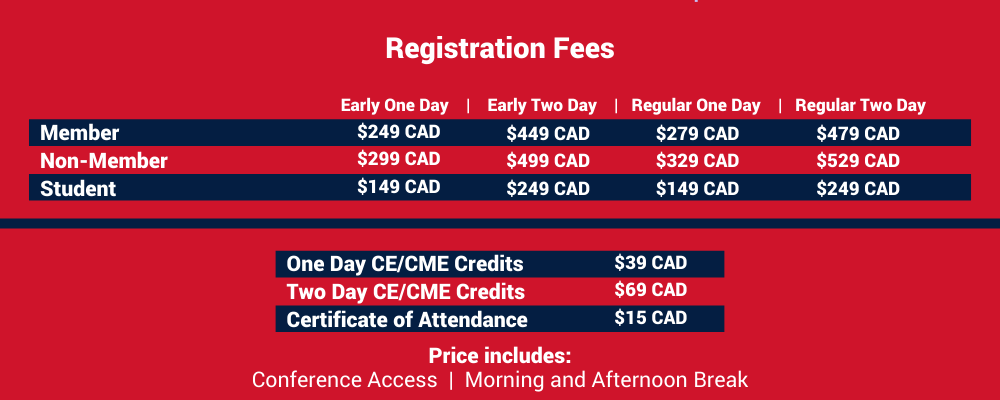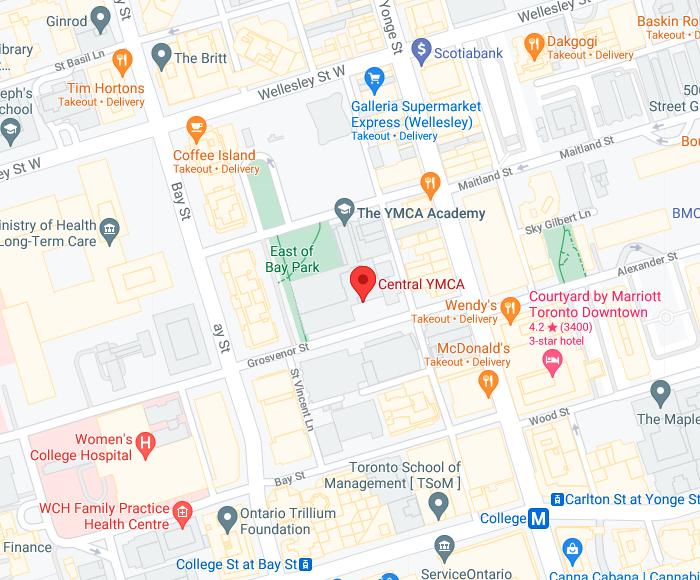Toronto Regional Conference

Changing Landscapes: Transforming the Way We Understand and Treat Complex Trauma
October 1-2, 2021
Virtual & Central YMCA of Toronto
Please note that at this time we are planning this event as an hybrid event with presenters presenting remotely. Local attendees will have the option of attending a watch party at the Central YMCA of Toronto if they choose. If we are unable to to hold the watch party due to COVID-19 conditions, the conference will be moved to a fully virtual format with the same schedule and presenters.
We are excited to announce our 2021 Regional Conference in Toronto, Canada! Join ISSTD for this two-day conference featuring presentations by Christine Forner, D Michael Coy, Colin Ross, and Peter Maves!
As we continue to see a need for increased trauma-informed services and approaches to mental health, becoming attuned to the differences between simple trauma, complex trauma, and dissociation is essential for determining how to proceed with respect to providing relevant treatment. By widening the lens through which we view and understand trauma, we make space for improved treatment outcomes and a more attuned therapeutic approach that lends to a more client centred therapy that is tailored to each client’s unique needs and symptoms.
We invite you to join us over two days to explore the relevance of complex trauma and dissociation in our practices and how we can increase our knowledge and awareness in order to improve client treatment and outcomes. This conference will include workshops on the history of complex trauma and dissociation as it exists within theory and practice, screening and assessing for complex trauma and dissociative disorders, how to treat dissociative disorders in different settings, and getting additional support through a consultation clinic with our seasoned presenters.
This workshop is intended for professionals at all stages of their career that wish to get a more in-depth introduction to the fundamentals of dissociation as a distinct response to trauma.
Schedule
Day One
8:00am-8:30am
8:30am-10:30am
10:30am-11:00am
11:00am-1:00pm
1:00pm-2:00pm
1:15pm-1:45pm
2:00pm-3:30pm
3:30pm-4:00pm
4:00pm-5:30pm
Registration Open
Dissociation: A Foundational Overview
Break
Dissociation: A Foundational Overview (continued)
Lunch
Membership Presentation
An Introduction to the Multidimensional Inventory of Dissociation
Break
An Introduction to the Multidimensional Inventory of Dissociation (continued)
Day Two
8:30am-8:55am
9:00am-10:30am
10:30am-11:00am
11:00am-12:30pm
12:30pm-1:30pm
1:30pm-3:00pm
3:00pm-3:30pm
3:30pm-5:00pm
Morning Mindful Movement
DID: How to Recognize It and Principles of Treatment
Break
DID: How to Recognize It and Principles of Treatment
Lunchtime Mix N Mingle
Time Effective Intervention Techniques for Crisis Management in the Treatment of Dissociative Identity Disorder
Break
Consultation Clinic
Registration Details

Early registration ends September 3, 2021.
Student registrations are reviewed and accepted upon approval. Student registrants must provide proof of current status in a related field and must submit verification by email or fax. All registration fees listed are in Canadian Dollars.
Group rates are available for groups of five or more from the same hospital, facility, or university. Please email ISSTD HQ for assistance with group rates. For groups of 5-9 the discount is 10% off registration fees, for groups of 10 or more the discount is 15% off registration fees.
Online registration allows for payment via credit card only. If you wish to pay via check or wire transfer, please complete the this registration form and submit it to the Registration Department via email at cfas@isst-d.org. We will process the form and provide information for making payment once this is completed.
Cancellation Policy
Cancellations must be received in writing via email or fax. A processing fee of $45 will be charged for cancellations received on or before September 1, 2021 at 5:00 PM ET. No refunds will be issued for no-shows. Refund requests will not be accepted after September 1, 2021. Not all requests will be granted. Substitutions for attendees are accepted at any time.
Grievance Policy
ISSTD is fully committed to conducting all activities in strict conformation with the APA and ASWB grievance procedures.
During this conference, conference organizers, presenters and staff will address any concerns that arise. Every effort will be made to address the concerns during the conference when possible. If these individuals are unable to address the participant’s concerns, the complaints and grievances shall be presented in writing to ISSTD Headquarters at cfas@isst-d.org. These will be forwarded on for review by the Virtual and Regional Conference Committee.
Social Workers: Should social workers have a specific grievance, these grievances will be addressed by D. Michael Coy, LICSW. In situations where the social worker would have a conflict of interest, then, Christine Forner, MSW will review the grievance.
ISSTD strives to resolve grievances in a manner that is in the best interest of the participant. All complaints and grievances are reviewed within 5 working days. Formal grievances are required to be written and emailed as directed above and will be responded to within 15 business days.
Disability Policy (ADA)
We would be happy to accommodate your ADA needs. Please contact ISSTD Headquarters via email at cfas@isst-d.org or via phone at 844.994.7783 for assistance.
Registration Contact Information
Email: cfas@isst-d.org
Phone: 844.994.7783
Fax: 888.966.0310
Presenters
Meet our Speakers!
Christine Forner, BSW, MSW, SP
Christine Forner, BSW, MSW, SP has over thirty years’ experience working with individuals with Trauma, Post Traumatic Stress Disorders, Traumatic Dissociation, Developmental Trauma and Dissociative Disorders. She has specialized training in EMDR, Sensorimotor Psychotherapy, Psychotherapeutic Meditation techniques and Neurofeedback. She holds a Masters of Social Work degree from the University of Calgary. Since 2011, Christine has worked in private practice, specializing in complex trauma and dissociative disorders. Christine teaches locally and at an international level on dissociation, complex trauma, and the intersection of dissociation and mindfulness. She was the President of the International Society for the Study of Trauma and Dissociation in 2019, served on the board of the ISSTD since 2010 and was the ISSTD treasurer from 2012-2017.
Christine is the author of Dissociation, Mindfulness and Creative Meditations: Trauma informed practices to facilitate growth (Routledge, 2017).
Christine has been the recipient of the ISSTD President’s Award in 2011, 2013, 2016, and 2021. She is also an ISSTD Fellow, recipient of the 2021 ISSTD Mid-Achievement Career Award and a finalist for the 2019 Richard Kluft Best Article Award sponsored by Taylor & Francis.
D Michael Coy, MA, LICSW
D. Michael Coy, MA, LICSW (he/they), is an EMDR Certified Approved Consultant through the EMDR International Association and served on EMDRIA’s Standards & Training committee from 2014 to 2017. Psychodynamically grounded, Michael integrates EMDR with additional training in clinical hypnosis, Ego State Therapy, and Sensorimotor Psychotherapy.
Since 2016, Michael has collaborated with Jennifer Madere and Multidimensional Inventory of Dissociation developer Paul F. Dell, PhD, to make the MID more accessible. He co-authored the MID Interpretive Manual, 3rd Edition, and manages the MID Analysis and MID website. Since 2017, Jennifer and Michael have taught hundreds of clinicians how to employ the MID, both in the US and internationally.
Michael has been a member of the Board of Directors of the International Society for the Study of Trauma and Dissociation (ISSTD) since 2017, and became Treasurer in 2018, a role in which he continues to serve. From 2017-2020, Michael co-chaired the EMDR Therapy Training Task Group, which created ISSTD’s EMDR therapy ‘basic’ training. He now co-chairs the EMDR Therapy Training Committee and co-teaches the training.
More recently, Michael has presented original material, in the form of the EMDR Introject Decathexis (Id) Protocol, to unbind perpetrator parts from their traumatic wounding and harming behaviors, as well as a framework for recognizing, contextualizing, and resolving clients’ dissociated memory material communicated non-verbally through dissociative attunement. He also provides consultation on the use of the MID and clinical practice with complex clients more generally, as well as O’Shea and Paulsen’s Early Trauma Approach, in individual and group formats.
Michael holds a Master of Arts in Clinical Social Work from the University of Chicago. He maintains a private practice in Bremerton, Washington, USA.
Colin A Ross, MD
Colin Ross, MD is an internationally renowned clinician, researcher, author and lecturer in the field of dissociation and trauma-related disorders. He is the founder and President of The Colin A. Ross Institute for Psychological Trauma.
Dr. Ross obtained his MD from the University of Alberta in 1981 and completed his training in psychiatry at the University of Manitoba in 1985. He has been running a hospital-based Trauma Program in Dallas, Texas since 1991.
Dr. Ross’s book, The Trauma Model: A Solution To the Problem of Comorbidity in Psychiatry, was first published in 2000, with a second edition appearing in 2007. Other books of his include: Trauma Model Therapy: A Treatment Approach for Trauma, Dissociation and Complex Comorbidity (2009), The C.I.A. Doctors: Human Rights Violations by American Psychiatrists (2006), Moon Shadows: Stories of Trauma & Recovery (2007), Structural Dissociation: A Proposed Modification of the Theory (2013), The Trump Card: A Psychiatrist Analyzes Reactions to Donald Trump (2017), Treatment of Dissociative Identity Disorder (2018), Be A Teammate With Yourself (2019), The Genetics of Schizophrenia (2020), and Opus 5 In B Flat And Other Poems (2020).
Dr. Ross has authored 34 books and over 230 professional papers, has reviewed for numerous professional journals and grant agencies, and is a past President of the International Society for the Study of Trauma and Dissociation. He has appeared in a number of television documentaries and has published essays, aphorisms, poetry, short stories, and screenplays.
Dr. Ross is adept at imparting complex information to diverse professional audiences on a variety of subjects. He has spoken widely throughout North America and Europe and in China, Malaysia, Australia and New Zealand.
Peter Maves, PhD
Peter Maves, PhD is a Licensed Clinical Psychologist, practicing in Longmont, Colorado since 1982, specializing in the treatment of complex trauma and dissociative disorders. He completed his PhD in Clinical Psychology at the University of Colorado at Boulder in 1982 and is the former Assistant Director of the Emergency Psychiatric Service of Boulder. He was the Clinical Director of Adams Community Mental Health Center and developed and was the Clinical Director of Centennial Peak’s Hospital’s Trauma and Dissociative Disorders Treatment Program. He was the Clinical Director of Columbine Hospital’s National Trauma Center. Dr. Maves has served as a Practice Monitor for the Grievance Board, State of Colorado and was an oral licensing examiner for the Colorado State Board of Psychologist Examiners, Department of Regulatory Agencies. Dr. Maves is a frequent presenter at national and international conferences on the treatment of complex trauma, dissociative disorders, traumatic brain injuries and military trauma. He is a Clinical Instructor at the University of Colorado at Boulder, supervising PhD graduate students in Clinical Psychology. He is a Fellow and Board member of the International Society for the Study of Trauma and Dissociation, a Diplomate in Clinical Forensic Counseling and a member of the European Society for Trauma and Dissociation.
Program
Below please find information about each of the presentations included in this conference. To view additional presentation information, including learning objectives, learning level, reference citations, and continuing education/continuing medical education credit information, click on the Full Presentation Detail link under each presentation.
Conference Objectives
Upon Completion of this conference, participants will be able to:
- Expand understanding of complex trauma and dissociative disorders and how they relate back to prolonged abuse and past trauma
- Review the advancements in the diagnosis of complex trauma, CTSD, and dissociative orders which can be incorporated into daily practice
- Differentiate dissociative disorders from other related mental health disorders and tailor treatment to the needs of patients with these disorders
Day One
Dissociation: A Foundational Overview
Presenter: Christine Forner
For many, when venturing into the world of trauma and dissociation, there is a great deal of mystery and misinformation. Within academic and clinical setting there is little to no education on the field’s theoretical foundations and history. This workshop is intended for students, emerging professionals and experienced practitioners who are interested in learning about the fundamentals of dissociation as a distinct response to trauma. The premise of this workshop is to cover essential information regarding dissociation and the dissociative disorders field. This course will cover:
- Theories of trauma and dissociation
- Impact of the false memory “war”
- Current dissociative models
- Breakdown of the dissociative disorders
- Neurobiology of trauma and dissociation
- Assessment and evaluation
- Current treatments
This workshop is designed to demystify dissociation and provide participants with a broad based understanding of it as a response to overwhelming stress.
An Introduction to the Multidimensional Inventory of Dissociation
Presenter: D Michael Coy
The Multidimensional Inventory of Dissociation (MID) has become a valuable assessment tool for trauma-focused clinicians–and EMDR practitioners in particular–both to determine the presence of ‘pathological’ dissociation and to develop more fine-grained interventions for preparation and successful trauma accessing/resolution. The MID is a 218-item, self-administered instrument with 168 dissociation items and 50 validity items developed by Paul F. Dell, PhD (2006, 2011). The MID reliably differentiates and offers diagnostic impressions for Posttraumatic Stress Disorder; Posttraumatic Stress Disorder, Dissociative Subtype; Other Specified Dissociative Disorder; Dissociative Identity Disorder; Functional Neurological Symptom Disorder; and, Borderline Personality Disorder.
Participants will learn to administer and score the MID; navigate the MID Analysis to enter data, interpret results, and conduct a follow-up interview; and begin to understand how the information offered up by the MID Report may influence treatment. Implications for stabilization and potential markers for readiness for trauma accessing in an EMDR therapy frame will be offered.
MID documents (including the new MID Analysis v5.0 and Interpretive Manual, 3rd Edition) are available without charge to mental health professionals and researchers at www.mid-assessment.com.
Day Two
DID: How To Recognize It and Principles of Treatment
Colin Ross
In this workshop, Dr. Ross will explain how to diagnose and treat dissociative identity disorder (DID). He will explain the four meanings of the word “dissociation” in the literature, which can be a source of confusion, and then will briefly review research data on the prevalence and reliability of DID and demonstrate how to use the Dissociative Experiences Scale (DES) and Dissociative Disorders Interview Schedule (DDIS) to diagnose DID. Attendees will be able to use and score the DES and DDIS upon completion of the training. The remainder of the workshop will be about treatment. Dr. Ross will explain a number of principles of the therapy including: the central paradox of DID; the problem of host resistance; talking through to alter personalities; orienting alter personalities to the body and the present; and the principle of therapeutic neutrality. Dr. Ross will provide case examples of specific techniques and there will be time for discussion and brief case consultations.
Time Effective Intervention Techniques for Crisis Management in the Treatment of Dissociative Identity Disorder
Presenter: Peter Maves
The treatment of dissociative disorders is a complex endeavor which requires the application of specialized techniques and an understanding of an elaborate sequence of defensive behaviors. While ongoing weekly sessions with dissociative disordered clients usually present unique and compelling treatment conditions, the intensity of these conditions typically magnify under emergency and crisis situations. This presentation will provide a number of crisis intervention techniques to assist in not only managing the emergency but promote productive treatment progress.
Consultation Clinic: The Treatment of DID with Personality Disorder Comorbidity
Presenters: Peter Maves, D Michael Coy, Colin Ross
The difficulties of treating complex trauma and dissociative conditions produce numerous times of confusion, uncertainty and lack of clarity about effective treatment approaches. When Axis II, personality disorder comorbidity is added, treatment considerations become even more difficult. After an overview discussion of personality disorder issues, including assessment and identification of Axis II comorbidity, participants will be invited to discuss treatment and management issues they encounter in their practice settings with emphasis upon possible personality disorder components. Treatment strategies will be discussed along with the unique transference and countertransference circumstances that arise in treating this population. The resistance points and treatment impasses which are a frequent part of the treatment will be identified and suggestions will be shared. Participants should disguise their clinical material so as not to compromise patient/client privacy.
Please note that this presentation is not eligible for continuing education credits.
Explore Toronto!
Toronto is Canada’s largest city and a world leader in such areas as business, finance, technology, entertainment and culture. Its large population of immigrants from all over the globe has also made Toronto one of the most multicultural cities in the world.

Your Guide to Local Attractions from Destination Toronto!
Attractions
Getting Around Toronto
Food and Drink
Venue & Travel
Conference Venue
Central YMCA of Toronto
20 Grovesnor Street
Toronto, ON M4Y 2V5
Travel
For information about traveling to Toronto, visit this page.

Continuing Education & Continuing Medical Education Credits
Information about approvals for individual sessions is included below. Participants attending the full conference will receive 11.5 continuing education credits.
We are currently working to add additional approvals for this event. Additional approvals will be posted as they are granted and we hope to have final approvals for all types of credits we will offer posted by September 1.
Awarding of Certificate of Credit
Continuing education credits are available for an additional fee for this event. To obtain continuing education credits, participants who have purchased credits must attend be in attendance for each session in full, sign in and out of every session, and complete a post-event evaluation. Certificates of Credit are awarded within 30 days of completion of the evaluation for the conference. Participants will be emailed a link to complete evaluations two to three weeks after the conference and will be able to download a pdf of their certificate after all evaluations are complete.
Continuing Education Information
Dissociation: A Foundational Overview
American Psychological Association
The International Society for the Study of Trauma and Dissociation is approved by the American Psychological Association to sponsor continuing education for psychologists. The International Society for the Study of Trauma and Dissociation maintains responsibility for this program and its content.
An Introduction to the Multidimensional Inventory of Dissociation
American Psychological Association
The International Society for the Study of Trauma and Dissociation is approved by the American Psychological Association to sponsor continuing education for psychologists. The International Society for the Study of Trauma and Dissociation maintains responsibility for this program and its content.
Dissociative Identity Disorder: How To Recognize It and Principles of Treatment
American Psychological Association
The International Society for the Study of Trauma and Dissociation is approved by the American Psychological Association to sponsor continuing education for psychologists. The International Society for the Study of Trauma and Dissociation maintains responsibility for this program and its content.
Time Effective Intervention Techniques for Crisis Management in the Treatment of Dissociative Identity Disorder
American Psychological Association
The International Society for the Study of Trauma and Dissociation is approved by the American Psychological Association to sponsor continuing education for psychologists. The International Society for the Study of Trauma and Dissociation maintains responsibility for this program and its content.
The Consultation Clinic
This session is not eligible for continuing education or continuing medical education credits.
Continuing Medical Education Information
Accreditation and Designation Statements and Disclosure Report
International Society for the Study of Trauma and Dissociation [A-00853]
October 1, 2021 – October 2, 2021
This activity has been planned and implemented in accordance with the accreditation requirements and policies of the Accreditation Council for Continuing Medical Education (ACCME) through the joint providership of PeerPoint Medical Education Institute and the International Society for the Study of Trauma and Dissociation. PeerPoint Medical Education Institute is accredited by the ACCME to provide continuing medical education for physicians.
PeerPoint Medical Education Institute designates the live format for this educational activity for a maximum of 11.50 AMA PRA Category 1 Credits™. Physicians should only claim credit commensurate with the extent of their participation in the activity.
Financial Disclosures
All presenters, planners, editors, or staff report no relevant relationships to disclose: “I do not have at present, or within the last 12 months, nor anticipate having financial interest, arrangement or affiliation with any organizations that could be perceived as a real or apparent conflict
Supporter & Exhibitor Opportunities
Discover New Connections in Toronto!
Our conference attendees represent the leading professionals in the world of trauma and dissociation. Our conferences allow for organizations to network with and promote your organization to attendees who have traveled from around the globe to be present. As a supporter or exhibitor, you will have the unique opportunity to tap into this esteemed network of professionals. Don’t miss out on this limited opportunity to connect one on one with psychologists, social workers, counselors and other mental health professionals who use and promote the products and services you have to offer!
ISSTD Organizational Membership Available Now!
ISSTD has launched a new Organizational Membership. This membership is open to treatment facilities, hospitals, multi-clinician practices, government organizations/agencies, and colleges/universities who specialize in the treatment of complex trauma and/or dissociation. Bronze, Silver and Gold memberships include exhibit and supporter opportunities in addition to membership. For more information on benefits and prices of the Organizational Membership with ISSTD, click here!
